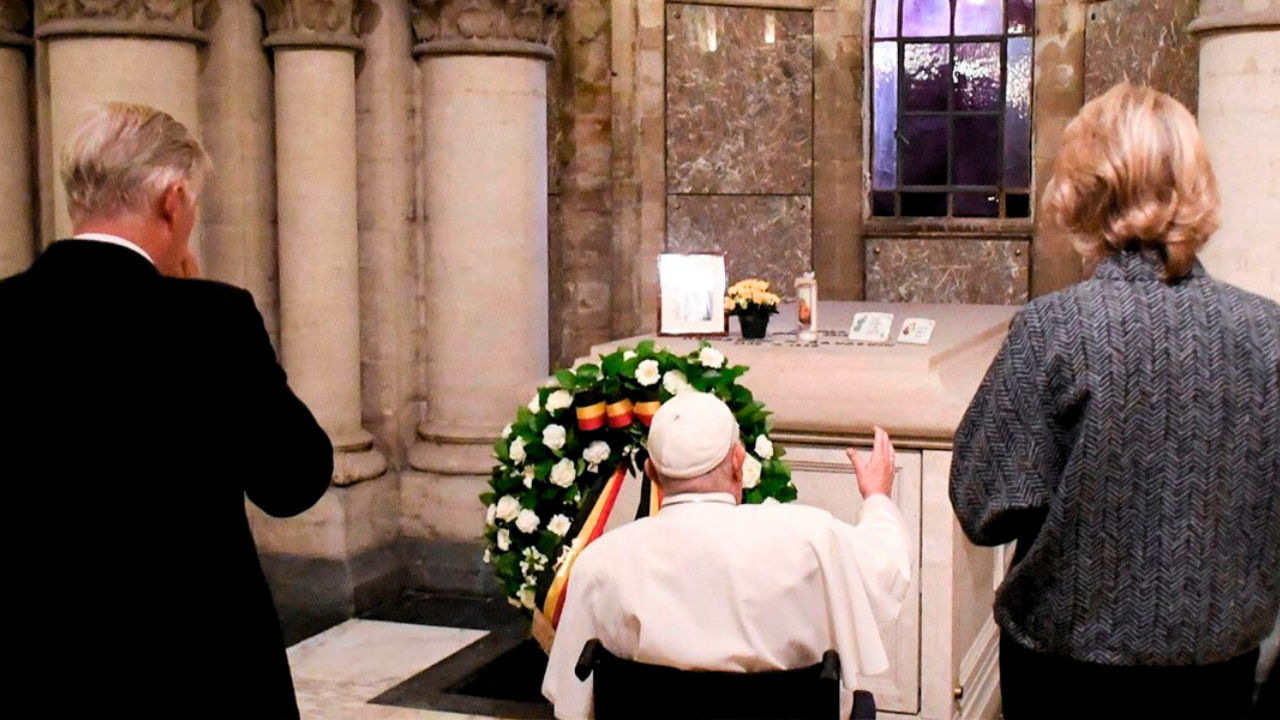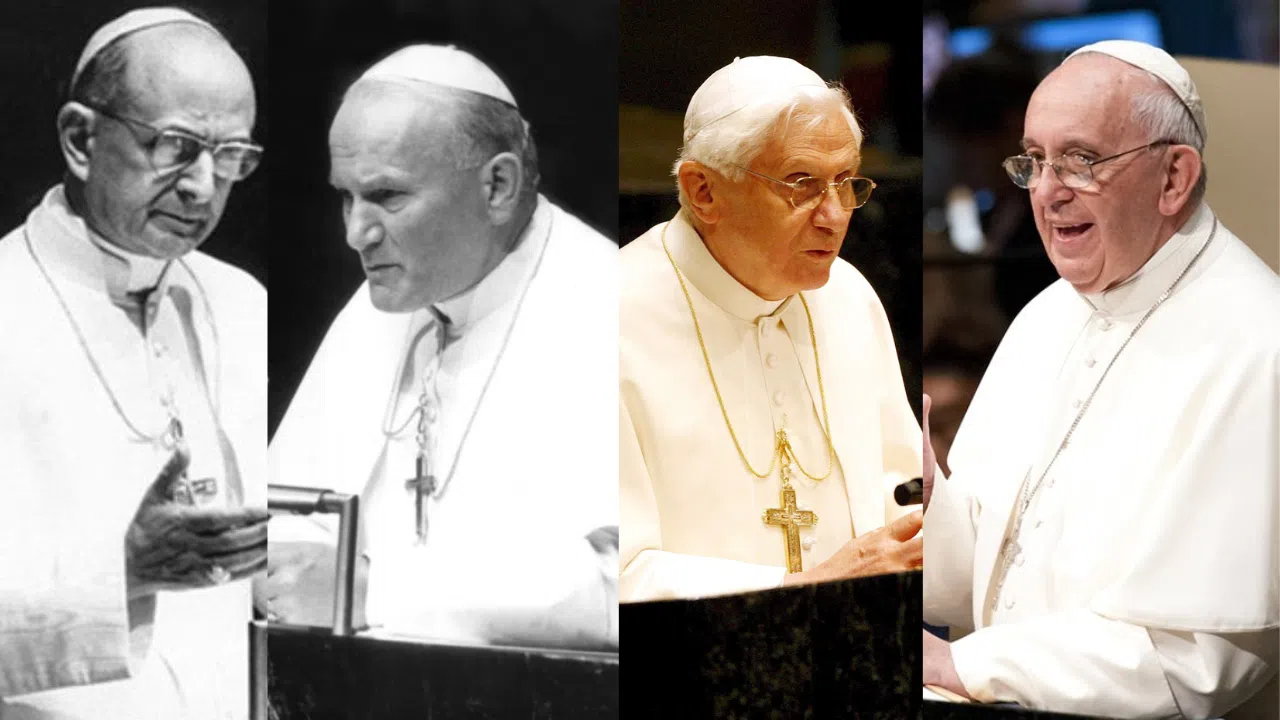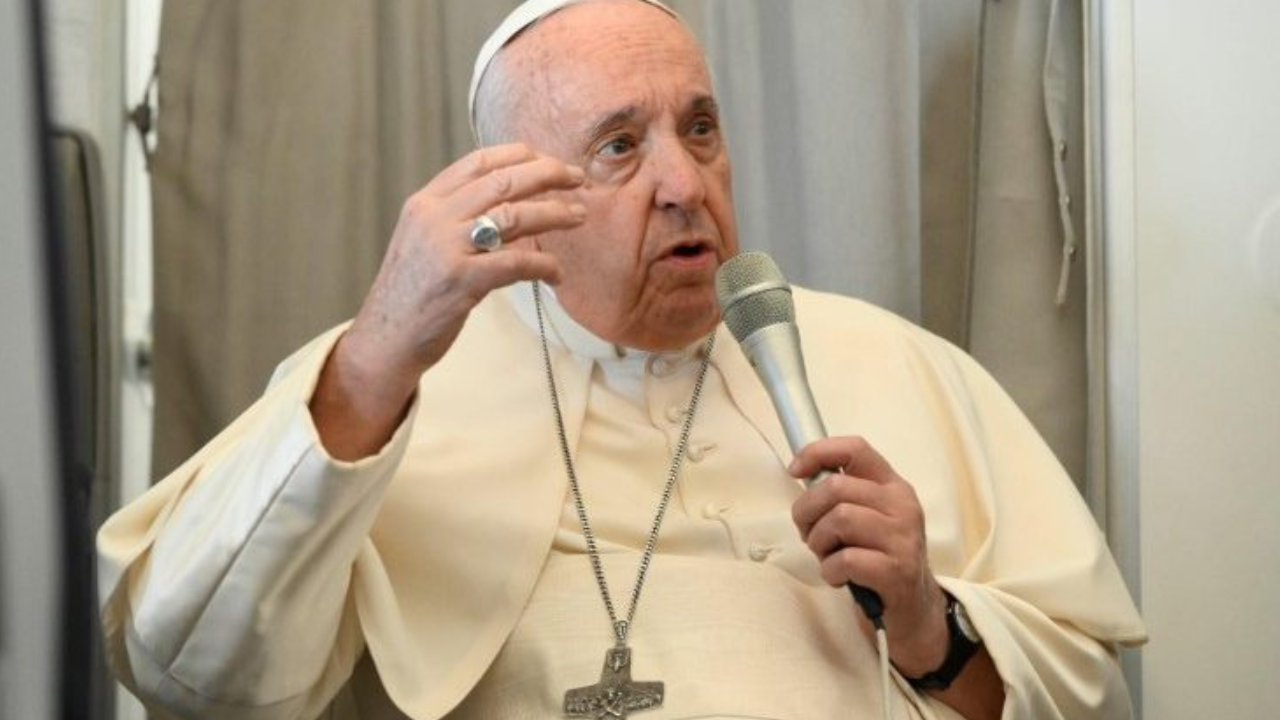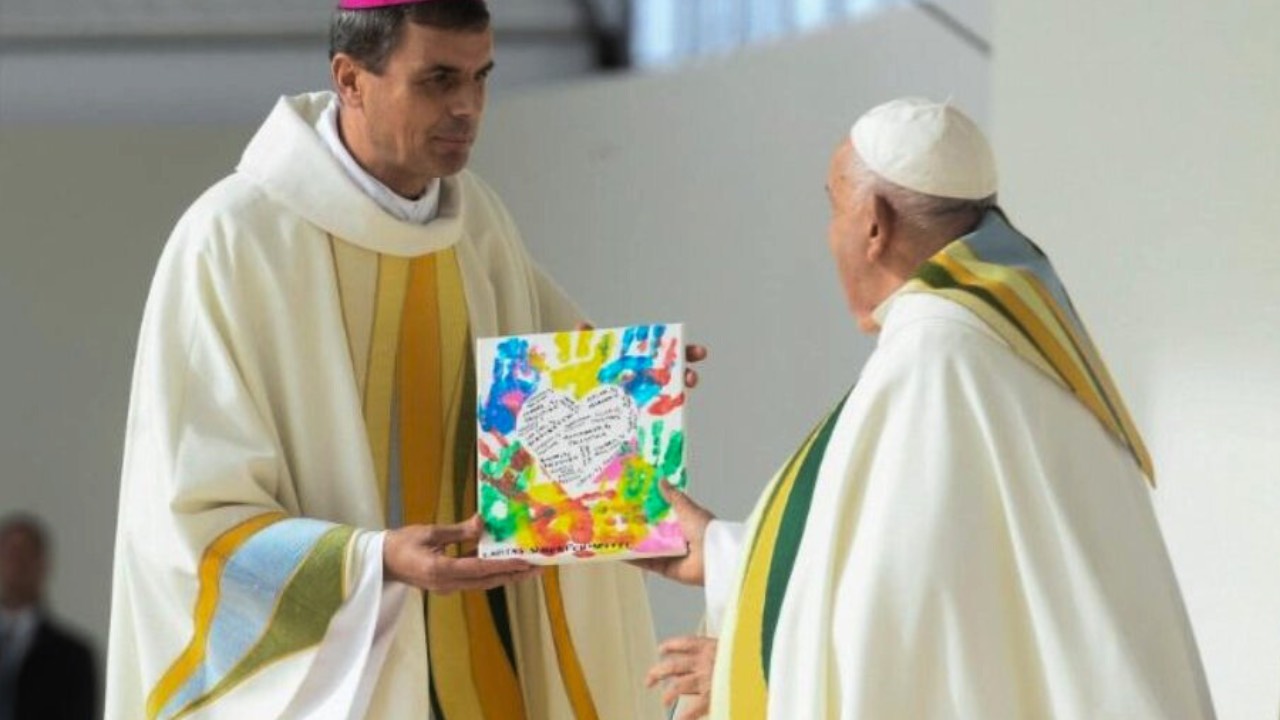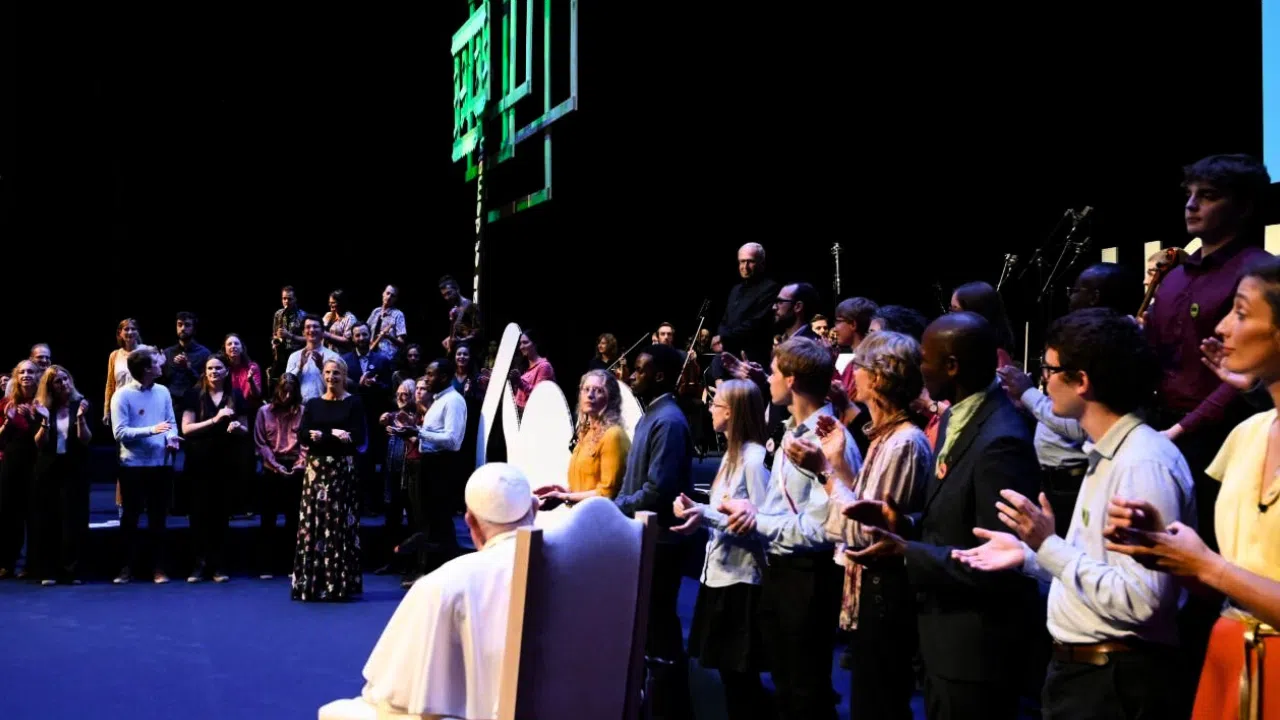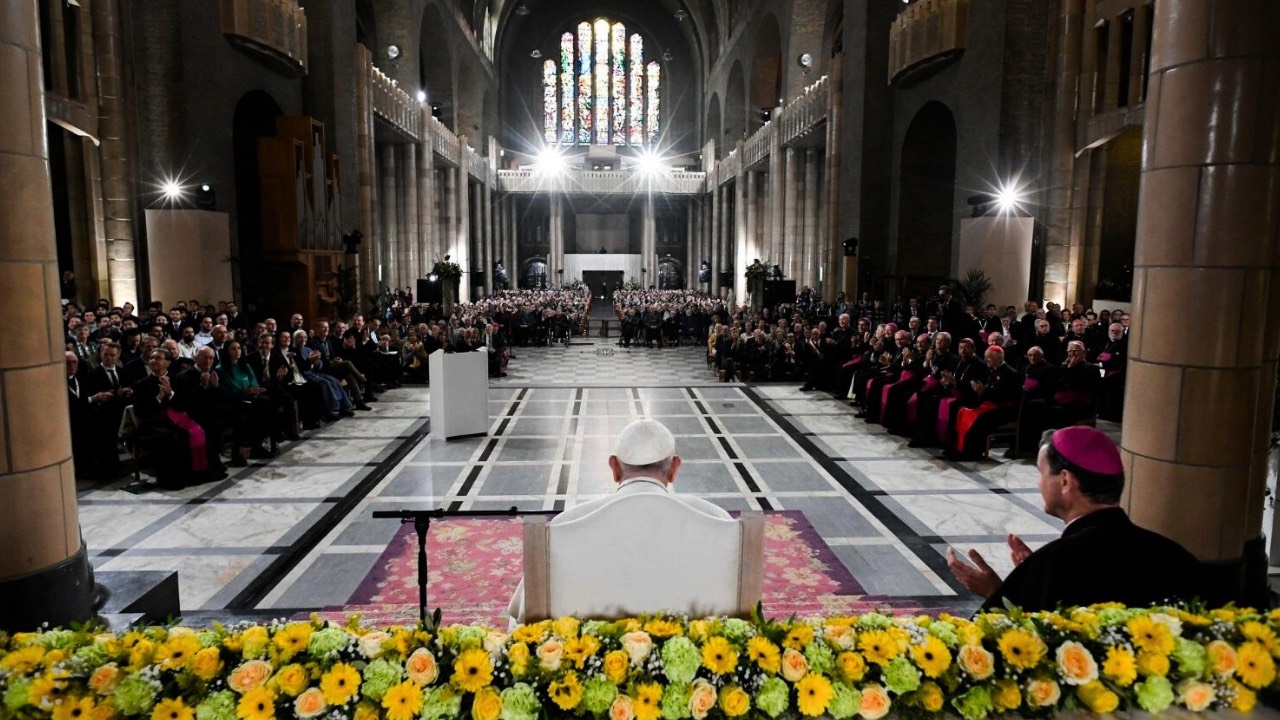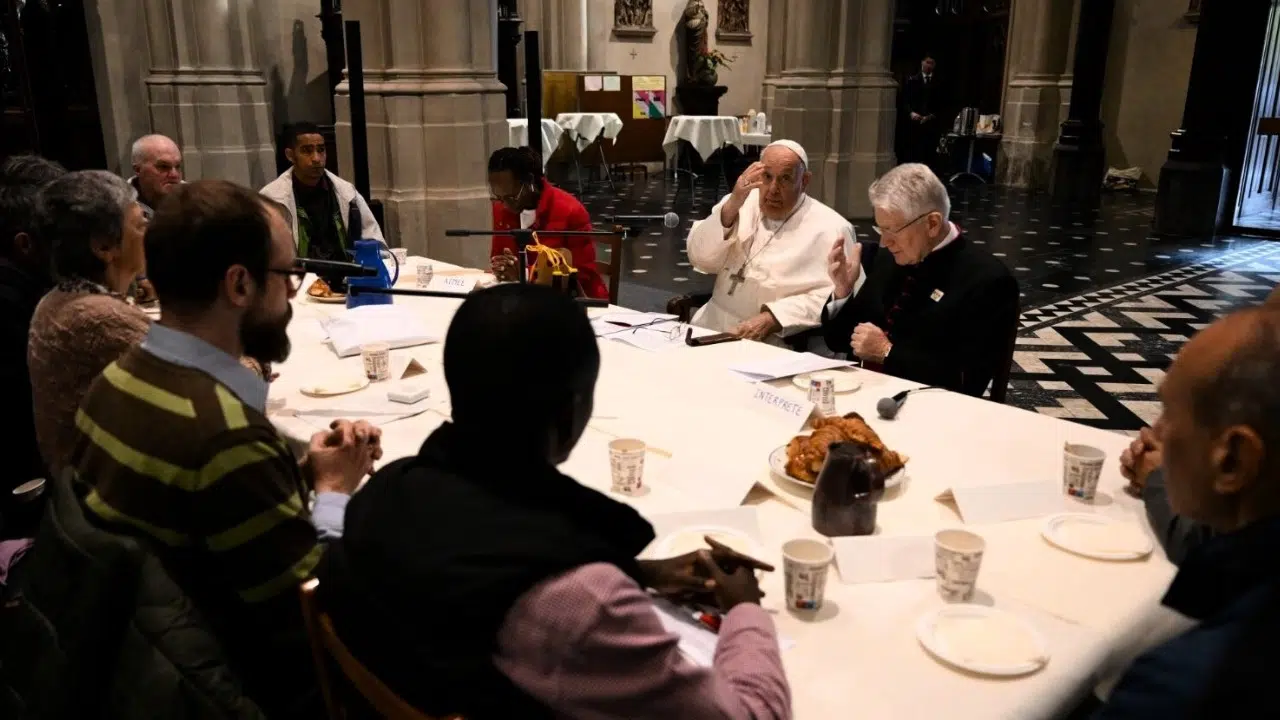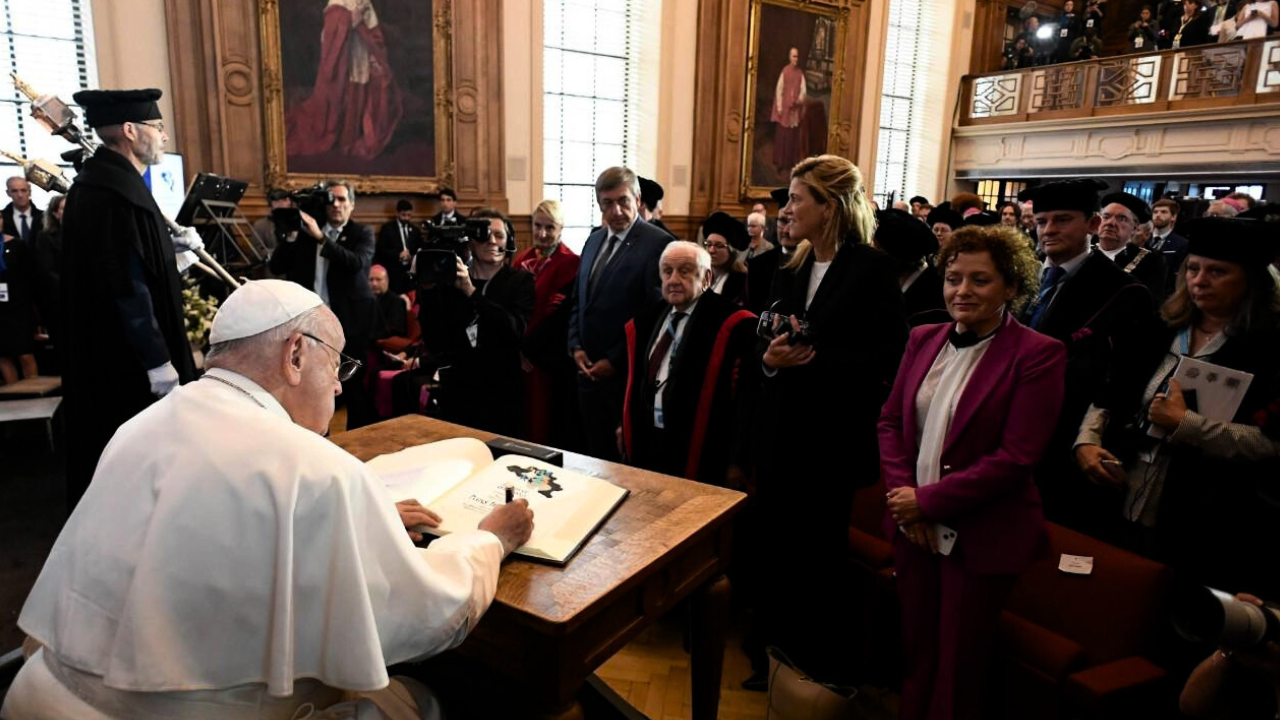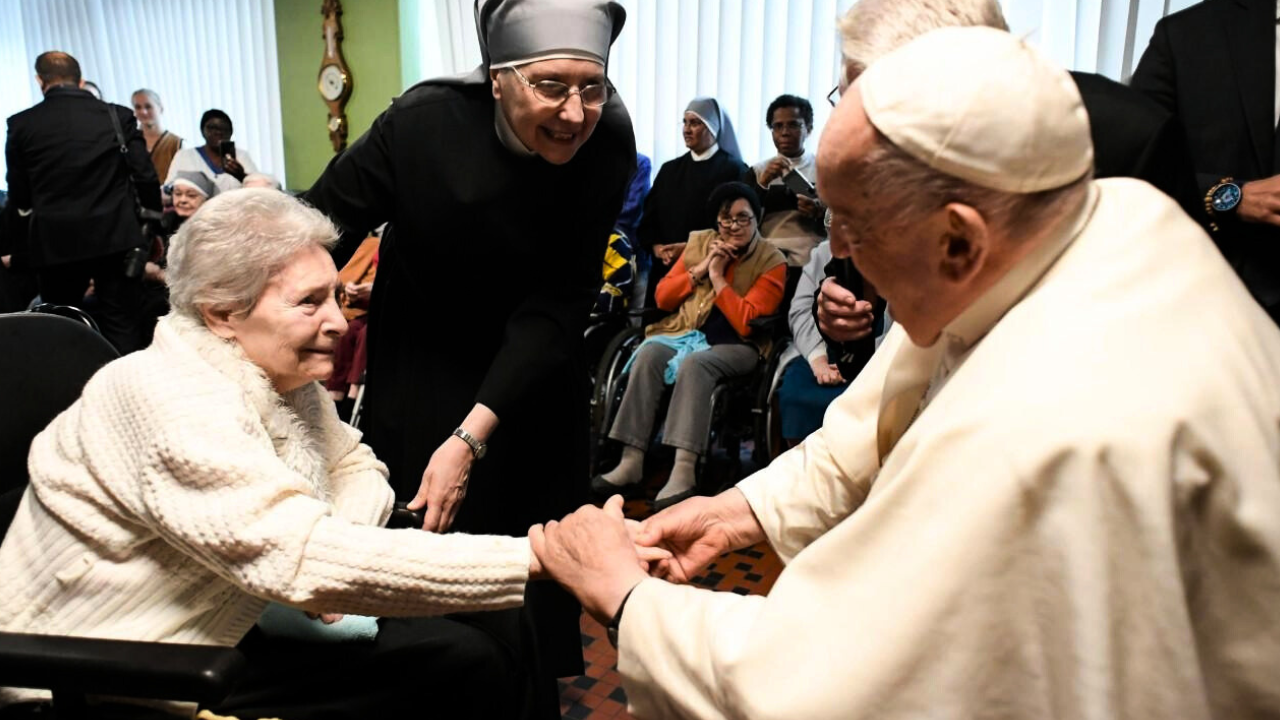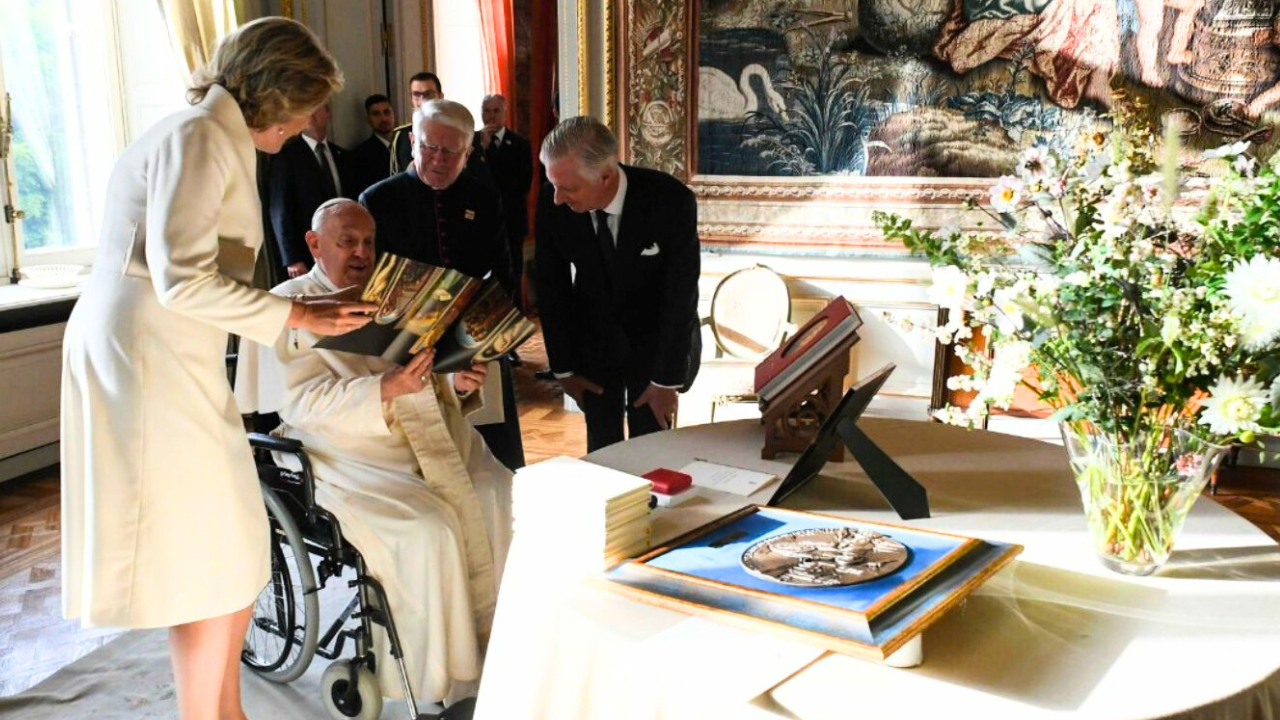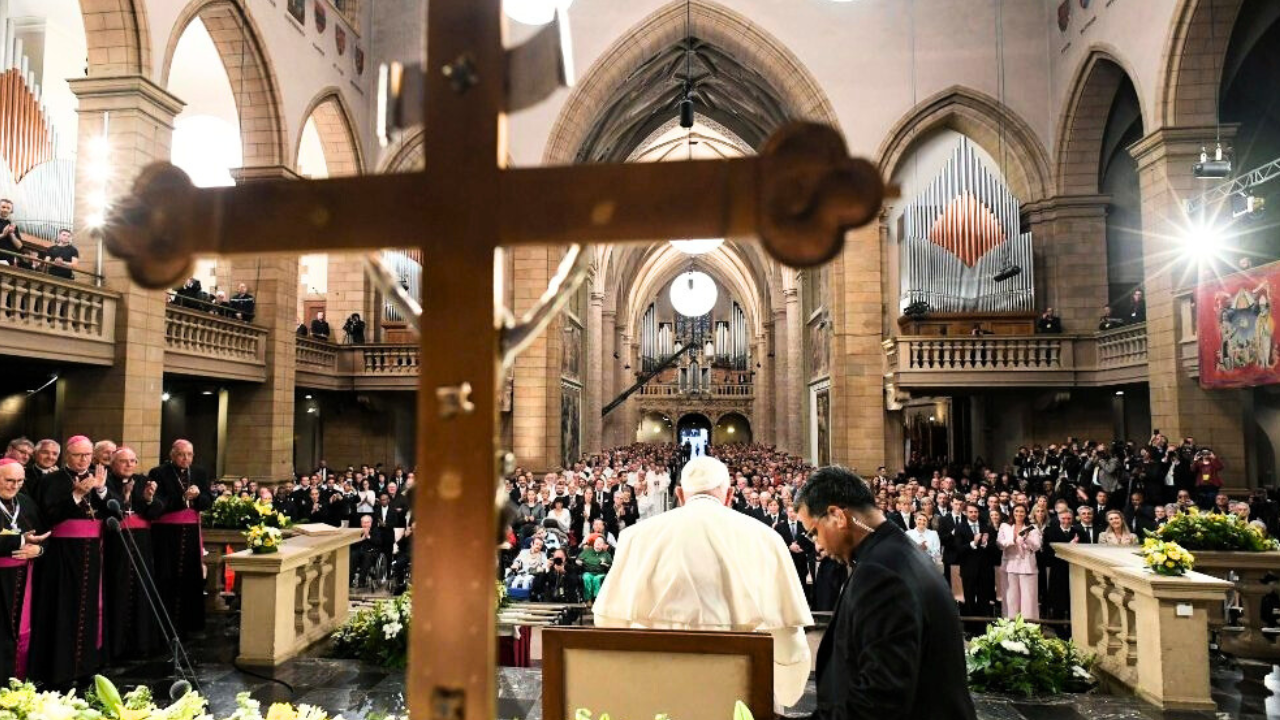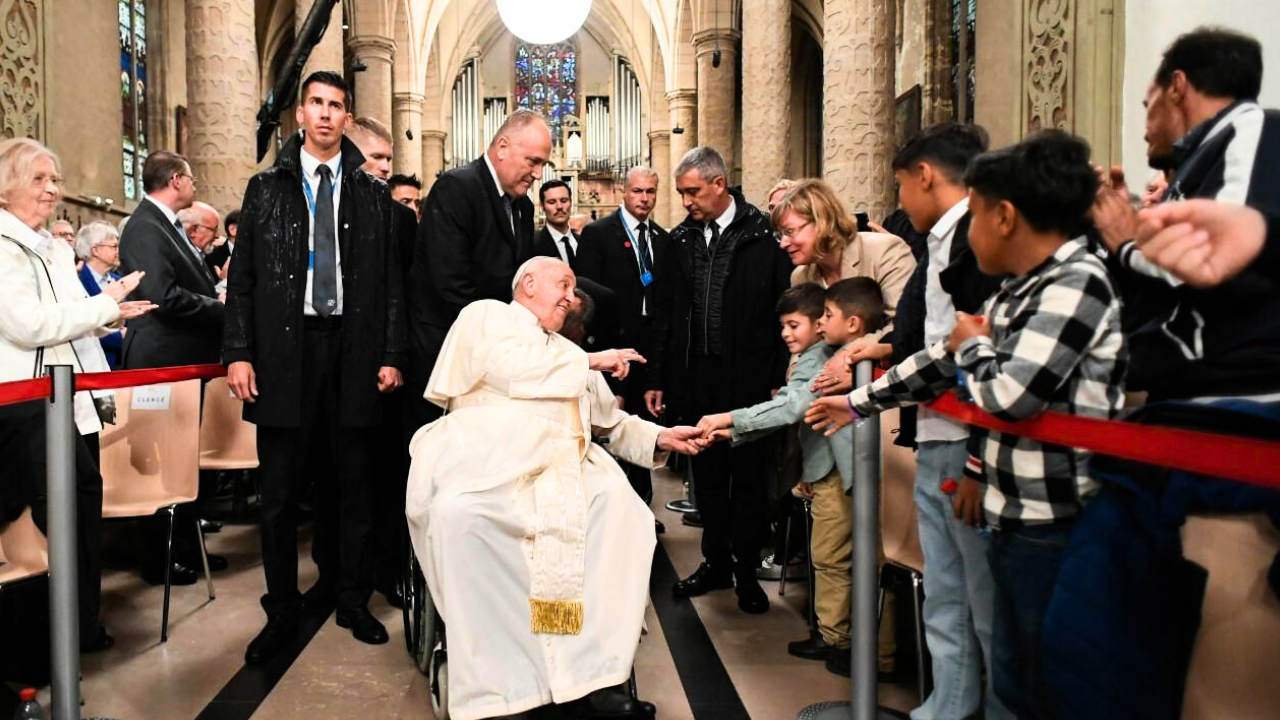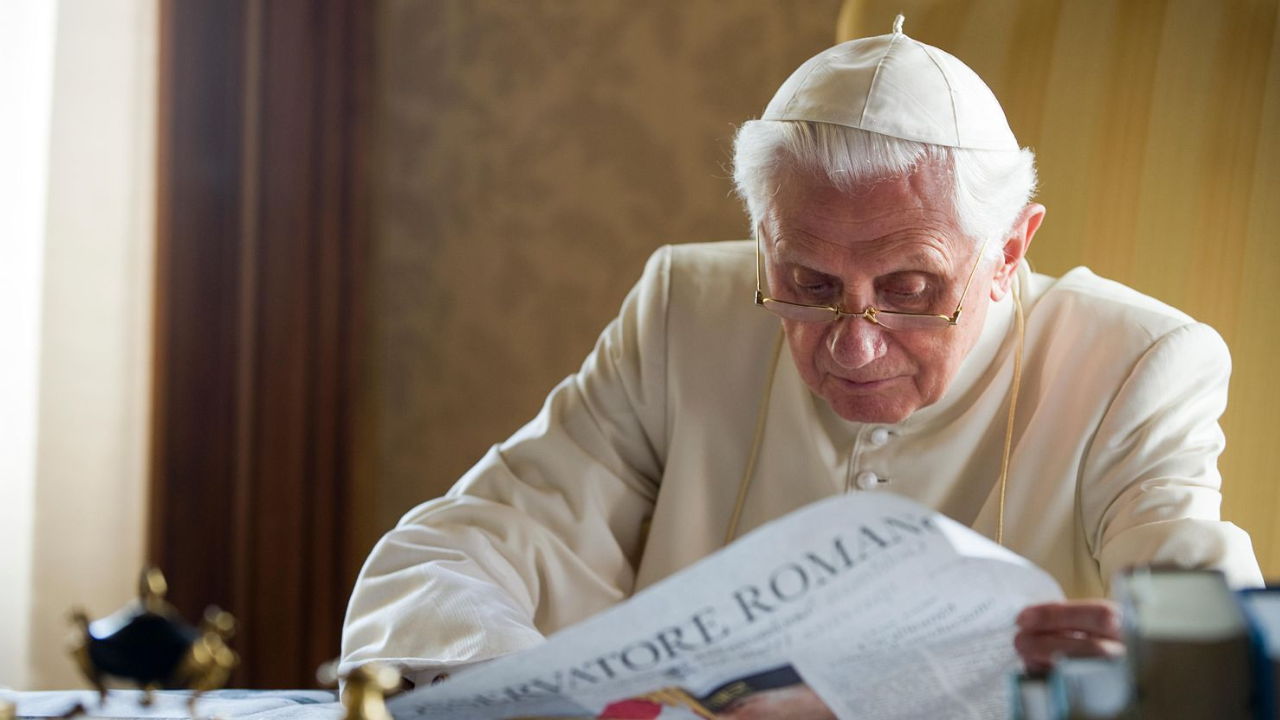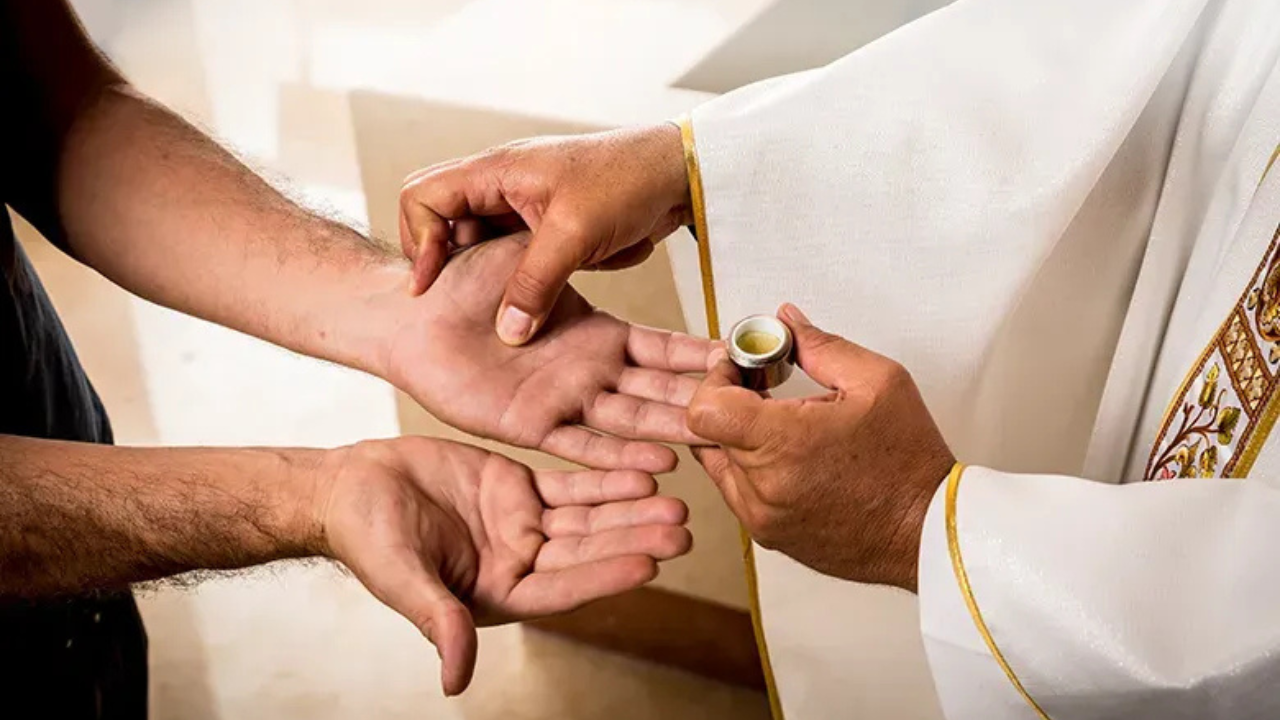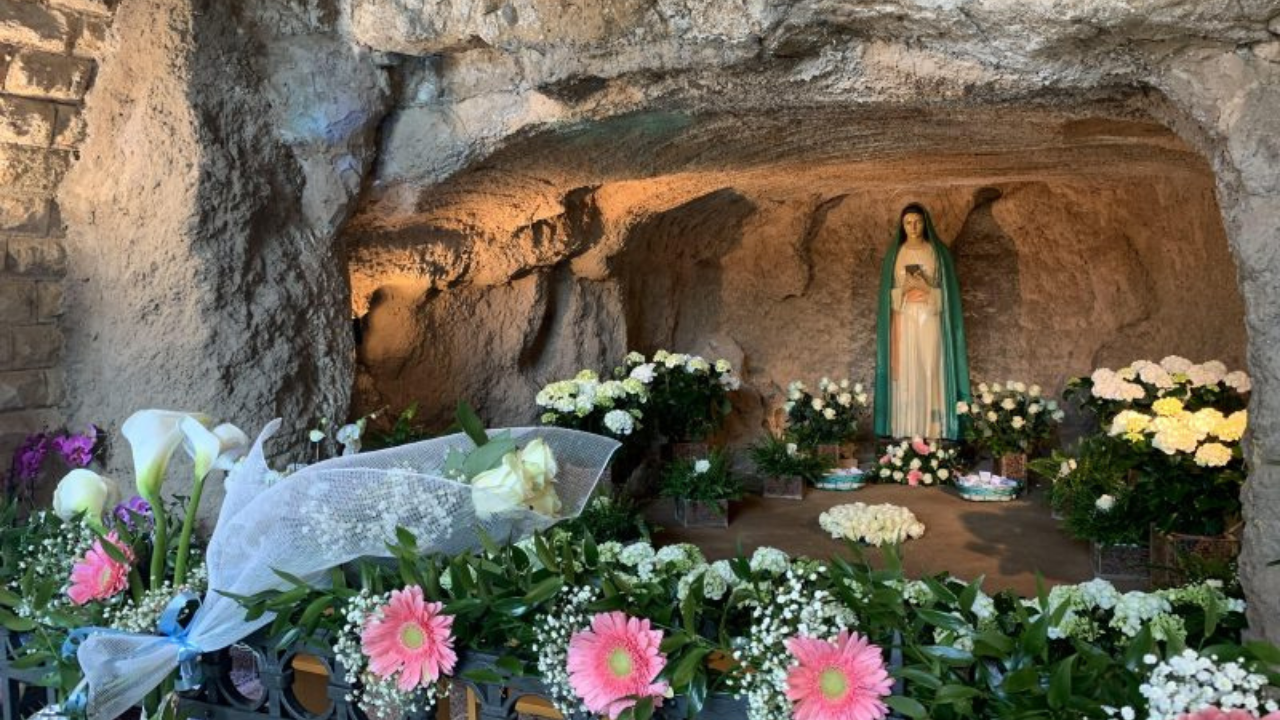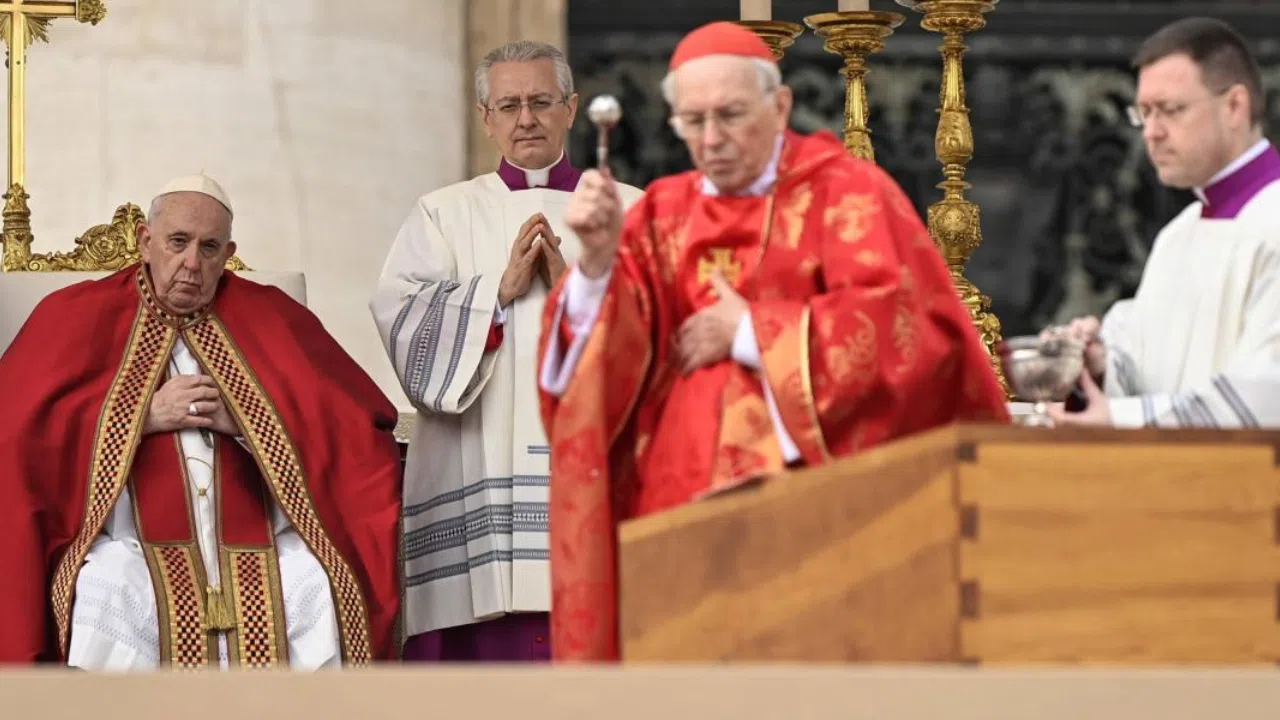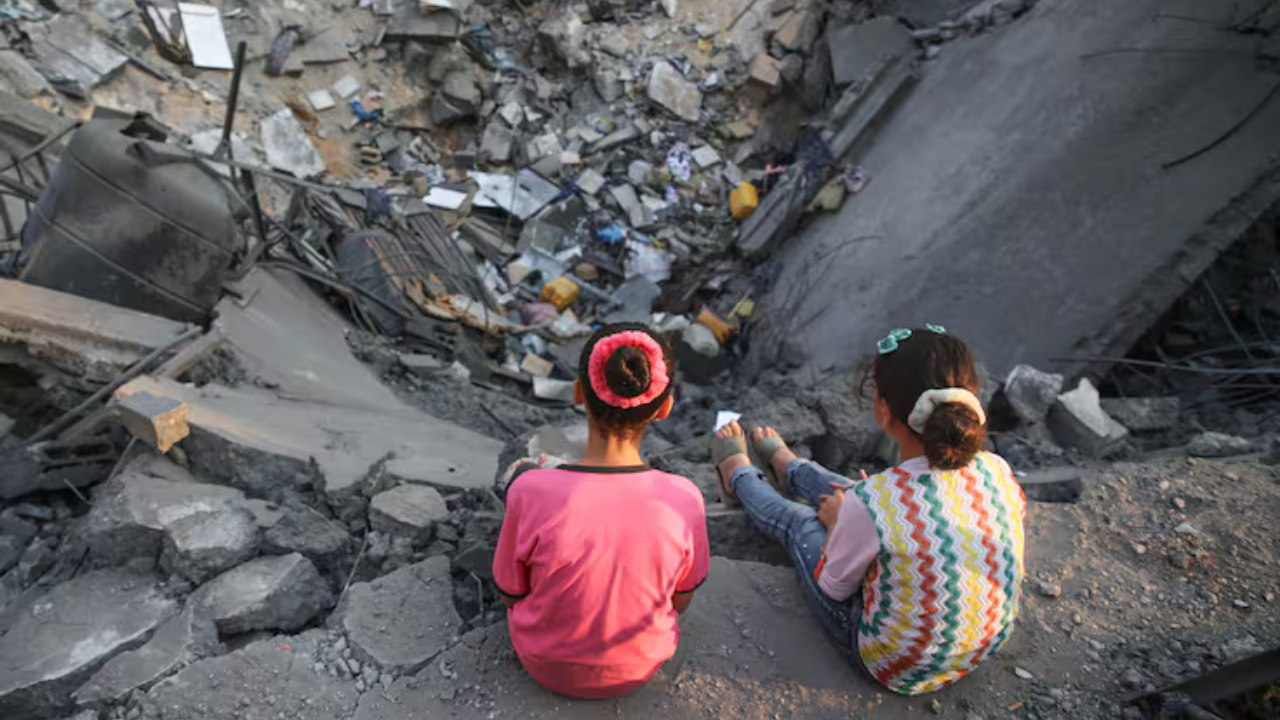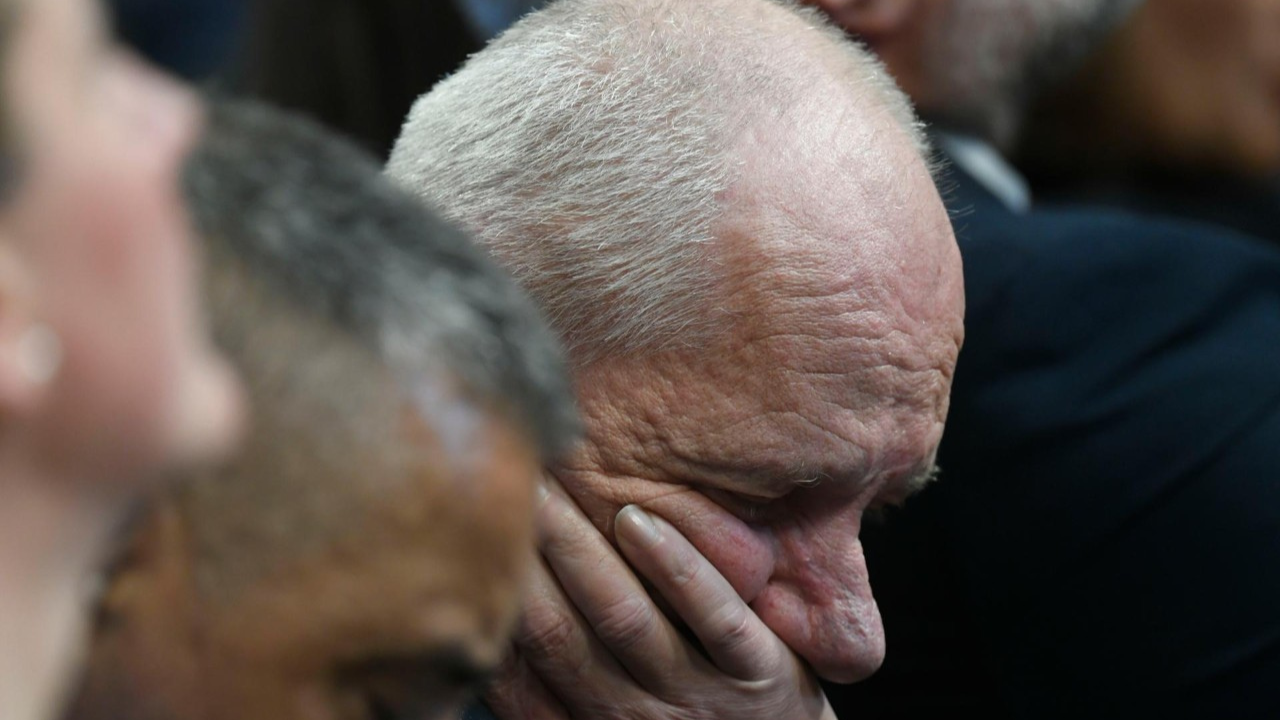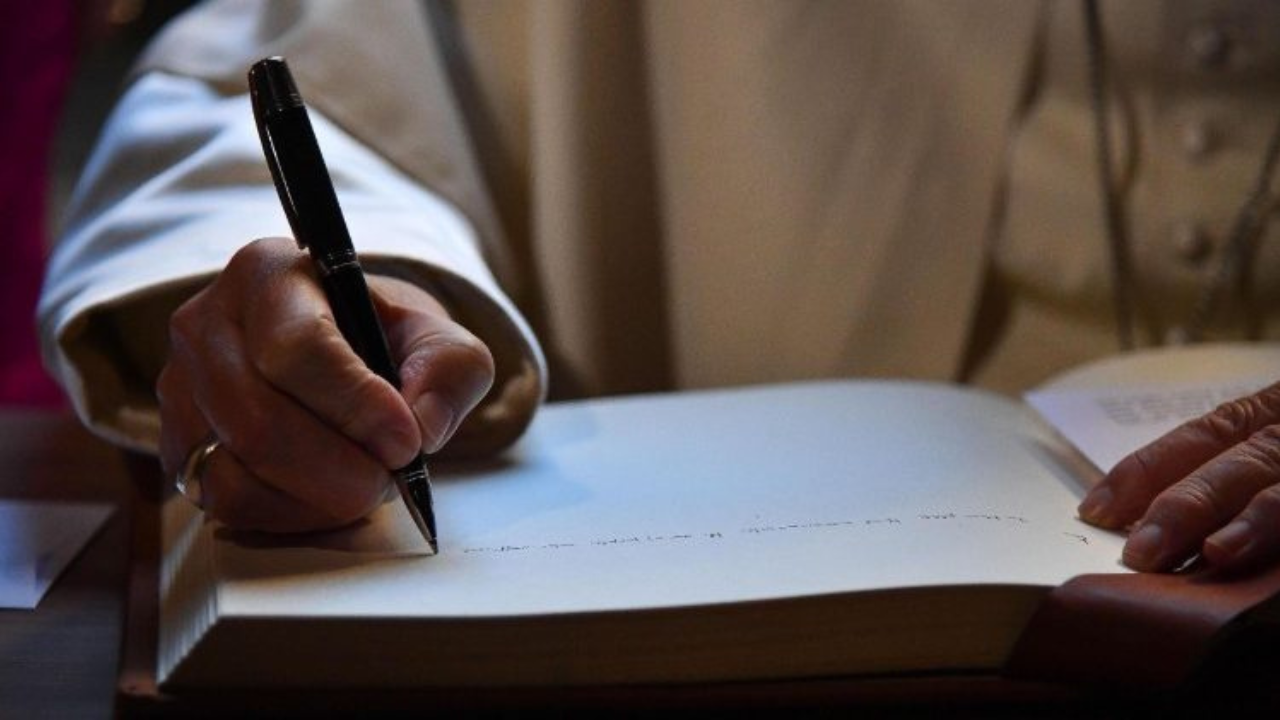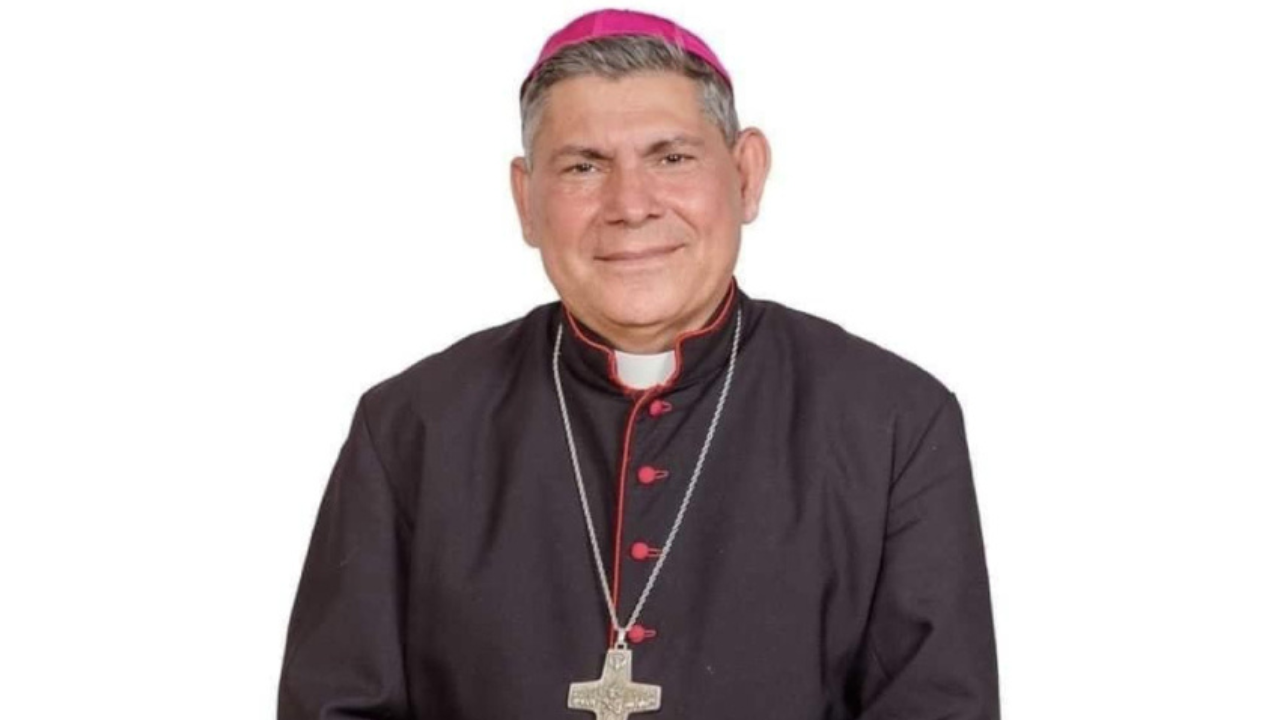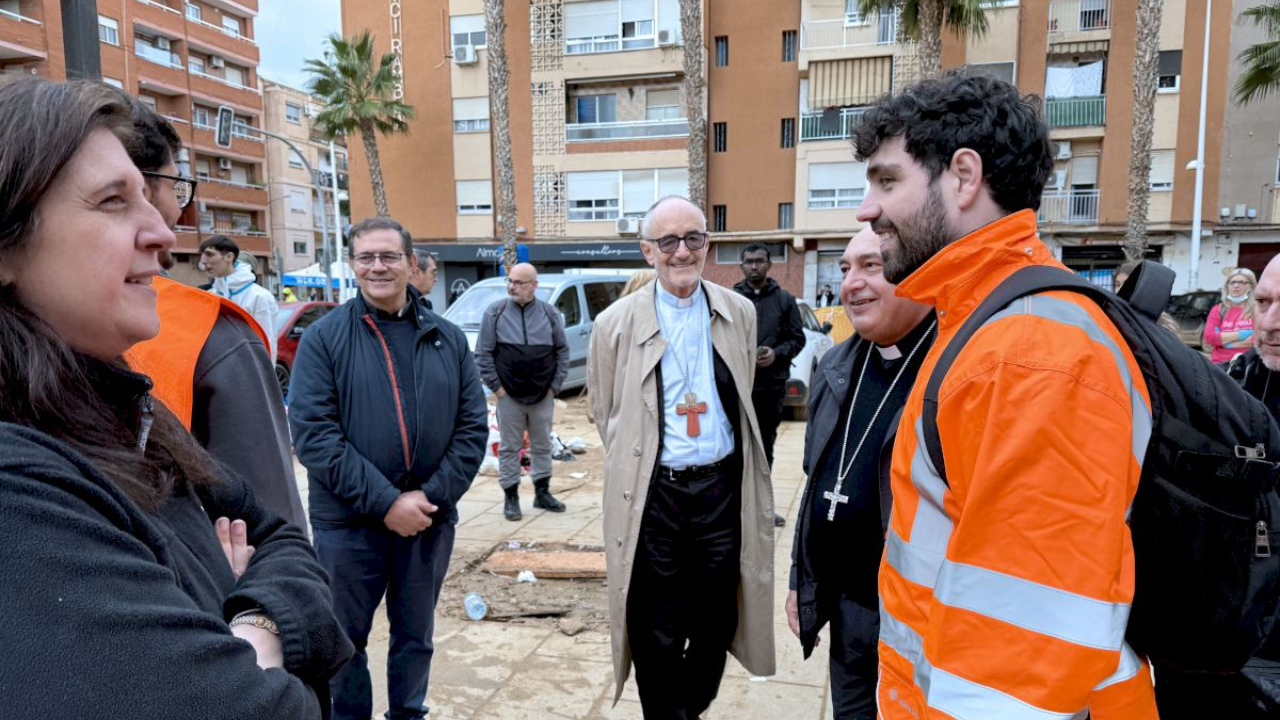The pope began his trip to the Baltic States in Vilnius, the capital of Lithuania.
At the foot of the ladder, he was received by the country's president, Dalia Grybauskaitė, and two children dressed in traditional costumes.
Then the pope moved to the presidential palace, where he met with the president and other authorities from the country.
'Your Holiness, I cordially welcome you to Lithuania.'
The president recalled that the 100-year anniversary of the country's independenceis being celebrated. She recalled that during the years of Nazi and Soviet occupation, the Lithuanian's faith made it possible for them to survive exile, imprisonment or the partisan bunkers.
The pope invited them to remember that their past, in order to build a future with a culture of dialogue, cannnot exclude anyone. He also said, totalitarianism prevented the respect of differences by sowing violence and suspicion.
POPE FRANCIS
“If we look at the world scene in our time, more and more voices are sowing division and confrontation – often by exploiting insecurity or situations of conflict – and proclaiming that the only way possible to guarantee security and the continued existence of a culture is to try to eliminate, cancel or expel others. Here you Lithuanians have a word of your own to contribute: 'welcoming differences'.”
It was the pope's first major speech on this four-day trip to the three Baltic States.
Lithuania is the Baltic country with the most Catholics, no less than 80 percent of the population.
The pope also visited the image of the most venerated Virgin in Vilnius, the Mother of Mercy, who is the so-called 'Gate of Dawn.'
As there wasn't much space, the area was reserved for orphan children, host families and the sick.
Next, the pope met with tens of thousands of young people before the cathedral. During the Soviet occupation, this temple was converted into an art gallery and shop for car parts.
POPE FRANCIS
“Think of all the times this Cathedral went up in flames and fell apart. Yet, there were always people ready to start rebuilding; they refused to let themselves be overwhelmed by hardship; they never gave up. The freedom of your nation, was also won by men and women who did not flinch before terror and misfortune.”
It was a very original encounter, with intense testimonies, and with songs and choreography that the pope liked very much.
